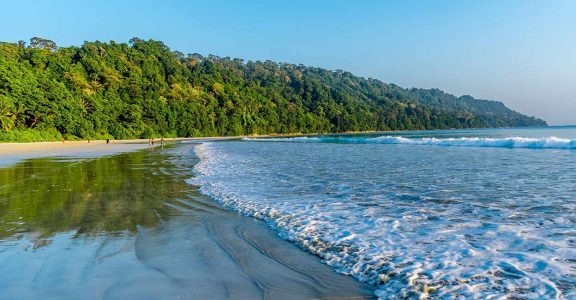Union Minister Amit Shah recently announced the renaming of Port Blair, the capital of the Andaman and Nicobar Islands, to ‘Sri Vijaya Puram.’ This move aligns with Prime Minister Narendra Modi’s broader mission to shed colonial-era legacies and celebrate India’s rich history, particularly its freedom struggle. The new name highlights the deep-rooted historical ties of the region with ancient Indian civilizations, specifically the Chola dynasty.
The Origins of Port Blair’s Name
Port Blair, as we know it today, owes its name to Archibald Blair, a British naval surveyor who explored the Andaman Islands in the late 18th century. Initially, the location was named Port Cornwallis, in honor of Commodore William Cornwallis, a prominent British naval officer. However, over time, it was renamed to recognize Blair’s extensive survey work in the region.
Colonial History of the Andaman Islands
Under British colonial rule, the East India Company identified the Andaman Islands as a key military outpost. Their strategic importance lay in providing a safe harbor and acting as a defense against pirate attacks in the Bay of Bengal. After the Indian Rebellion of 1857, the British established a notorious penal colony here, where countless freedom fighters were imprisoned under brutal conditions.
Port Blair’s Role in India’s Freedom Struggle
One of the most notable landmarks in Port Blair is the Cellular Jail, constructed in 1906. Known infamously as “Kaala Paani,” this prison housed many of India’s greatest freedom fighters, including Veer Savarkar, who endured extreme hardships for their role in the independence movement. Today, the Cellular Jail stands as a poignant reminder of the sacrifices made for India’s freedom.
Historical records also suggest that the Andaman Islands served as a naval base for Chola Emperor Rajendra I during the 11th century. The Chola king launched a naval expedition against the Srivijaya Empire, located in present-day Indonesia, from these islands. At that time, the islands were referred to as Ma-Nakkavaram, a name that is thought to have evolved into the modern-day “Nicobar.”
The Chola-Srivijaya Conflict: A Historical Debate
The reasons behind the Chola Empire’s conflict with the Srivijaya Empire have long been debated by historians. Some scholars believe the clash was rooted in trade disputes, while others argue that it was part of the Cholas’ larger ambition to extend their influence across Southeast Asia. This period of interaction between the Chola and Srivijaya Empires led to notable military and cultural exchanges, leaving a lasting impact on the region’s history.












